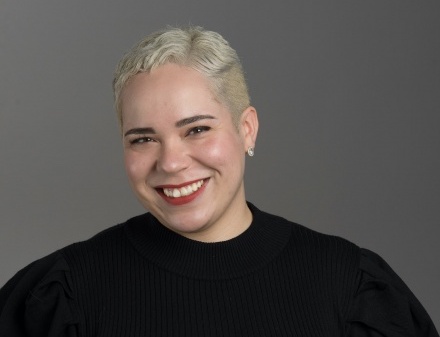In the Doctor of Philosophy (PhD) in Christian Education and Congregational Studies program students study how Christian faith is formed and embodied in communities of faith through the integration of insights from theology and the social sciences (psychology, education, sociology, anthropology).
Two key emphases of the program are:
Our interdisciplinary emphasis equips students to engage several fields in their research projects such as congregational studies, multi-cultural education, human development, qualitative research, history, and theology.
Adriana (Dri) Rivera, MDiv is an educator with a love for the stories of the city and her people. She is currently pursuing a PhD in Christian Education and Congregational Studies with concentrations in Latina feminist theology and critical pedagogy. As a poet and part of the Puerto Rican diaspora, Adriana is interested in how language and stories (testimonios) can be used for decolonial and life-giving purposes in classrooms, congregations and communities.

The PhD in Christian Education and Congregational Studies is a 40-credit hour degree program.
3 Foundational Courses (7-credit hours)
6 to 8 Courses in Major (18- to 24-credit hours)
3 to 4 Courses in Minor (9- to 12- credit hours)
2 Elective Courses as needed (6 credit hours)
Research Languages and/or Research Tools (2)
Qualifying Exams
Dissertation Proposal
Dissertation and Defense
To add a focus in African American/Black Religious Studies, a student would take a minimum of fifteen hours of courses with specific African American/Black content, as selected by the student in consultation with their advisor. Persons opting for this focus would have an African American/Black advisor or consulting co-advisor, or as a committee member. At least one of the student’s Qualifying Examination questions would be on a dimension of African American/Black religion. The student’s dissertation would incorporate some element relating to African American/Black religious life and thought.
Graduates of this program will be able to:
Garrett accepts applications from students with a masters degree in religious or theological studies from an accredited college or university and proficiency in the English language.
Applications are due by January 10th each year for the following fall.